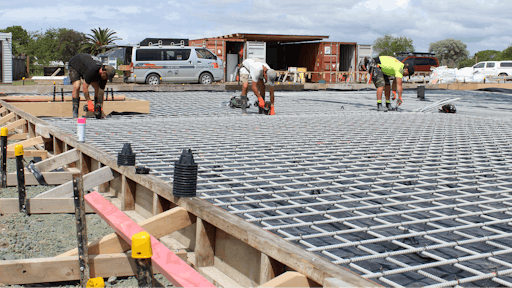Exploring the Uses and Advantages of Recycled Composites in Modern Industries
The combinations of recycled products with advanced composite technologies provides an encouraging opportunity for boosting sustainability, resilience, and cost-efficiency throughout numerous industries. As markets look for cutting-edge services to deal with ecological problems and improve functional performances, the unification of recycled compounds arises as an engaging choice.
Ecological Advantages of Recycled Compounds
The utilization of recycled composites in modern-day industries offers considerable environmental benefits, adding to the reduction of waste and the conservation of all-natural resources. By incorporating recycled composites into producing processes, markets can decrease their reliance on virgin materials, thus minimizing the amount of waste generated and the energy needed for removal and manufacturing. This shift towards using recycled compounds assists in drawing away products from garbage dumps, minimizing the burden on waste monitoring systems, and reducing greenhouse gas discharges connected with conventional production practices.
Additionally, using recycled compounds promotes the preservation of natural sources such as hardwood, minerals, and water, which are often depleted through the removal and processing of basic materials (composites). By prolonging the lifespan of products through recycling, industries can aid protect ecosystems and biodiversity by lowering the demand for brand-new resources. In general, the fostering of recycled compounds in modern-day industries plays an essential duty in advertising sustainability and alleviating the environmental effect of production procedures
Enhanced Sturdiness in Item Production
With a focus on long life and robustness, incorporating recycled compounds into item manufacturing procedures enhances resilience and sustainability. By utilizing recycled compounds, producers can develop products that are not just solid but additionally resistant to tear and use, making them ideal for lasting usage in numerous markets. The mix of various materials in recycled compounds can usually result in improved toughness and toughness compared to traditional materials, giving a cost-effective option for generating resilient items.
Among the vital advantages of using recycled composites in product manufacturing is the capacity to customize the product homes to meet certain resilience requirements. By changing the make-up and production methods, manufacturers can tailor the recycled composites to hold up against rough ecological conditions, hefty lots, or constant usage without compromising on performance. This flexibility in design and production enables the development of extremely long lasting products that preserve their stability in time, minimizing the requirement for regular replacements and inevitably contributing to a much more sustainable manufacturing procedure.
Cost-Effectiveness and Economic Advantages
Integrating recycled compounds into product production not just boosts sturdiness and sustainability yet also offers considerable cost-effectiveness and financial benefits. Utilizing recycled composites can result in reduced product prices as recycled products are typically cheaper than virgin products. Furthermore, reusing composite products can reduce garbage disposal expenditures and lower the need for garbage dump area, adding to total price financial savings for sectors.

Technology and Layout Versatility With Recycled Composites
Using recycled composites in modern-day markets offers unequaled chances for innovation and layout versatility. By incorporating recycled products into composite production procedures, companies can push the boundaries of typical style constraints and discover new possibilities. The convenience of recycled composites permits the development of complicated shapes and frameworks that might not be attainable with conventional products.
Among the vital advantages of recycled compounds is their ability to be formed right into different kinds, giving developers the freedom to trying out distinct forms and dimensions. composites. This versatility opens a world of read what he said imaginative opportunities, making it possible for the growth of lightweight yet durable items that fulfill the certain needs of various industries
Furthermore, the usage of recycled composites promotes sustainable methods and sustains the round economy by lowering waste and reducing the ecological influence of producing processes. This concentrate on eco-friendly design services lines up with the growing pattern in the direction of sustainability in modern markets, making recycled composites a useful resource for forward-thinking and cutting-edge business.
Applications Throughout Numerous Industries
Recycled compounds locate impactful and varied applications throughout a vast array of industries due to their unique residential properties and sustainability benefits. In the vehicle field, these products are increasingly used for producing long lasting and lightweight components, improving gas efficiency and lowering carbon discharges. The aerospace industry gain from recycled compounds in the manufacturing of airplane components, where the products' strength-to-weight proportion is critical for guaranteeing safety and security and performance. In building, these compounds are used for producing strong yet green building materials, adding to sustainable framework advancement. The renewable resource sector uses recycled composites in wind generator blades and photovoltaic panels, utilizing their strength and resistance to rough environmental conditions. In addition, the aquatic market utilizes these products for producing watercraft hulls and elements, using enhanced longevity and rust resistance. The flexibility and sustainability of recycled composites make them useful across numerous sectors, driving technology and ecological stewardship. Full Article composites.
Conclusion
Finally, the usage of recycled compounds in modern-day industries uses significant environmental advantages, enhanced durability in product production, cost-effectiveness, and financial advantages. The usage of recycled compounds permits for technology and design pop over to this site adaptability across different markets. On the whole, the fostering of recycled compounds offers a useful and sustainable option for satisfying the demands of the industry while also minimizing ecological effect.

One of the crucial advantages of using recycled compounds in product manufacturing is the ability to customize the material residential properties to satisfy specific toughness demands. Utilizing recycled compounds can lead to decreased material expenses as recycled materials are usually much less costly than virgin products. The aerospace market advantages from recycled composites in the production of aircraft components, where the products' strength-to-weight proportion is critical for guaranteeing safety and security and efficiency.